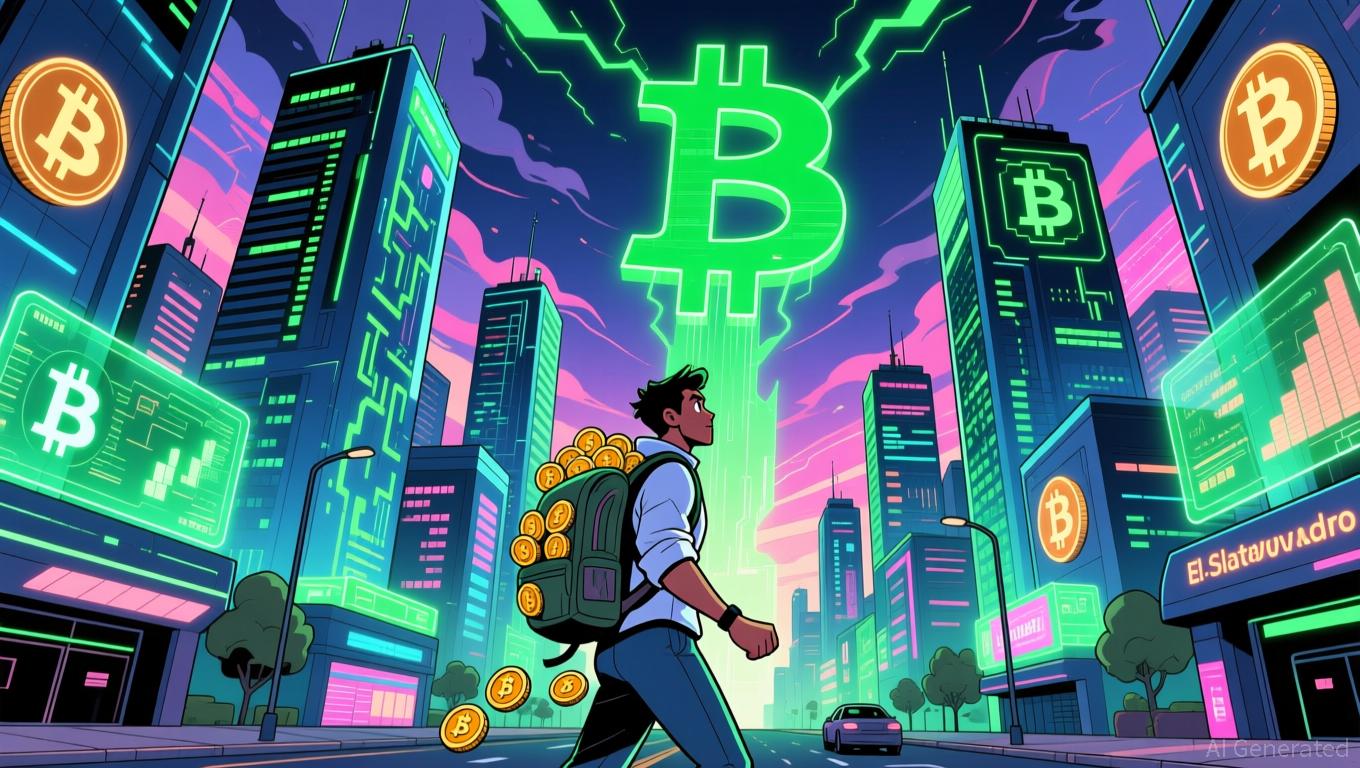The COAI Token Fraud: An Alert for Everyday Cryptocurrency Investors
- COAI token scandal exposes DeFi's systemic risks, causing $116.8M loss and 88% price collapse. - Regulatory ambiguity and unpatched vulnerabilities in DeFi infrastructure enable scams, highlighting audit needs. - Experts advocate AI-driven risk tools and thematic due diligence to address governance gaps and fraud. - Retail investors urged to prioritize audits, KYC/AML compliance, and avoid AI bot scams for self-protection.
Regulatory and Leadership Failures: A Perfect Storm
The collapse of the COAI token was intensified by inconsistent regulatory policies. The U.S. Securities and Exchange Commission (SEC) and Commodity Futures Trading Commission (CFTC) have not yet aligned their approaches to stablecoin classification,
In Southeast Asia, where
Technical Vulnerabilities and the Need for Smart Contract Audits
The COAI token fraud also revealed technical shortcomings in DeFi systems. For example,
Expert Warnings: AI-Driven Risk Management and Thematic Due Diligence
Following the COAI debacle, industry experts are pushing for risk management systems powered by artificial intelligence.
Lessons for Retail Investors: Vigilance in a High-Risk Ecosystem
The COAI token incident offers practical guidance for individual investors:
1. Analyze Tokenomics Carefully: Examine project documentation, team credentials, and community activity.
2. Insist on Smart Contract Audits: Ensure that projects have been independently reviewed by trusted auditors(https://www.bitget.com/news/detail/12560605068422).
3. Be Alert to AI Bot Scams:
4. Emphasize KYC/AML Standards:
Conclusion: A Call for Systemic Change
The COAI token scandal is not an isolated case but reflects deeper, widespread risks within DeFi. Although technological advances continue to fuel growth, the absence of uniform due diligence and clear regulations leaves investors vulnerable. As
Disclaimer: The content of this article solely reflects the author's opinion and does not represent the platform in any capacity. This article is not intended to serve as a reference for making investment decisions.
You may also like
Crypto’s Surge in Leverage Encounters Risk Management with Introduction of New Futures
- Cboe Futures Exchange launches Bitcoin and Ether Continuous Futures on Dec 15 to hedge crypto volatility. - Cash-settled contracts with cross-margining aim to mitigate risks from leveraged trades amid recent $168M liquidation events. - CFTC-aligned margin requirements and educational sessions highlight growing institutional interest in structured crypto derivatives. - Kraken’s $20B IPO and Trump’s Genius Act signal maturing markets and U.S. regulatory influence on global crypto governance. - Record lever

Bitcoin News Update: El Salvador Bets on Bitcoin as a Sovereignty Safeguard, Challenging IMF Conditions
- El Salvador's government defied IMF loan terms by purchasing $100M in Bitcoin , adding 1,090 BTC to its strategic reserves during a price slump. - Total holdings now reach 7,474 BTC ($676M), acquired through a "buy the dip" strategy despite IMF warnings about financial stability risks. - The IMF has not condemned the purchases but emphasizes compliance, while critics warn of fiscal instability and lack of public education on Bitcoin. - Bukele's administration defends Bitcoin as a hedge against inflation

AI’s $219 Billion Energy Sector Boom Fueled by Automation That Reduces Workforce
- AI-driven automation in energy management is displacing workers as the $219.3B market grows via predictive analytics and smart grid integration. - SoundHound AI accelerates agentic AI expansion with $269M cash reserves while C3.ai faces $116.8M losses and leadership instability. - Regulators struggle to balance AI's efficiency gains with labor displacement risks as blockchain and compliance tools adopt AI solutions. - The PwC developer's layoff exemplifies how AI's cost-cutting potential outpaces its abi

Trust Wallet Token (TWT) Price Trends in November 2025: Institutional Adoption and DeFi Collaboration Redefine Value Potential
- TWT's 2025 governance upgrades enhance institutional appeal through transparent DAO mechanisms and policy flexibility. - Trust Premium program incentivizes TWT usage via tiered rewards, creating flywheel effects for token demand and retention. - Institutional credibility and DeFi integration strengthen TWT's value proposition, stabilizing price dynamics amid market consolidation. - Recurring utility in gas discounts and tier upgrades establishes baseline demand, buffering against broader crypto volatilit